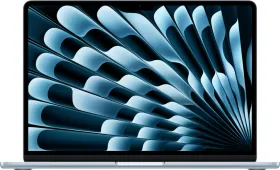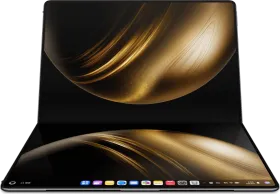TL; DR
- As part of the AMP, the Cupertino giant is expanding partnerships with suppliers, including Corning, which will now manufacture 100% (that’s a big commitment) of the cover glass used on the iPhones and Apple Watch in a factory in Harrodsburg, Kentucky.
- Apple is also working with the Korean conglomerate Samsung “to launch an innovative new technology for making chips, which has “never been used before anywhere in the world.” The production will take place at Samsung’s fab in Austin, Texas.
- By announcing another $100 billion as an investment in local manufacturing partnerships, Apple seems to be aligning itself with Trump’s America-first policy.
To woo the American administration and Trump amid the vocal disappointment regarding manufacturing iPhones outside of the USA, Apple has announced the “American Manufacturing Program,” which adds another $100 billion on top of the $500 billion the company already pledged to invest in the United States over the next four years.
Per the official press release, the American Manufacturing Program (AMP) aims to bring “even more of Apple’s supply chain and advanced manufacturing” and “incentivize global companies to manufacture even more critical components” in the United States. With AMP, Apple plans to hire 20,000 people from the region, focusing on R&D, silicon engineering, software development, and AI & machine learning.
Also Read: iPhone 17 Air Roundup: 5.5mm Chassis, ProMotion Display, A19 Chip, C1 Modem & Everything Else
Key Aspects Of The American Manufacturing Program (AMP)

Major Partnerships & Local Manufacturing Investments
As part of the AMP, the Cupertino giant is expanding partnerships with suppliers, including Corning, which will now manufacture 100% (that’s a big commitment) of the cover glass used on the iPhones and Apple Watch in a factory in Harrodsburg, Kentucky.
“Soon, every iPhone and Apple Watch sold around the world will be built with Kentucky-made cover glass,” the press release mentions. Further, the companies will soon open a new Apple-Corning Innovation Center in Kentucky.
Besides Corning, Apple is also partnering with other companies.
- Coherent (which produces the VCSEL lasers used in Face ID)
- GlobalWafers America (GWA) for the advanced wafers for use in semiconductor fabs
- Applied Materials (for semiconductor manufacturing equipment)
- Texas Instruments (TI)
- GlobalFoundries (for manufacturing cutting-edge wireless technologies)
- Amkor
- Broadcom (for additional cellular semiconductor components)
Also Read: Galaxy S26 Edge Battery Size: Ice Universe Walks Back Earlier Claim, Says It’s 4,200 mAh Now
Apple is also working with the Korean conglomerate Samsung “to launch an innovative new technology for making chips, which has “never been used before anywhere in the world.” The production will take place at Samsung’s fab in Austin, Texas.
Although Apple doesn’t elaborate on the technology’s specifics or its use cases, it mentions that the collaboration “will supply chips that optimize power and performance of Apple products.”
American Facility Expansions
- A new server-manufacturing facility in Houston, Texas, will begin mass production by next year.
- Data center expansion and infrastructure projects in North Carolina, Nevada, and Oregon.
- Apple Manufacturing Academy in Detroit, which will offer consultations and courses to small and medium-sized businesses.
- A rare earth magnet manufacturing and recycling partnership with MP Materials in Texas and California.
Strategic Motivations Behind The American Manufacturing Program (AMP)

By announcing another $100 billion as an investment in local manufacturing partnerships, Apple seems to be aligning itself with Trump’s America-first policy. It could also be an attempt to dodge current and proposed tariffs, especially those that might target the supply routes from China and India.
Over the past few months, the American president has repeatedly criticized Apple and CEO Tim Cook for expanding its manufacturing facilities in India and Vietnam.
For the time being, it looks like Apple has managed to secure a position in Trump’s good books with direct capital investments, manufacturing partnerships, workforce training programs, and the 24K gold-plated memento Cook presented to Trump on live TV.
Also Read: Trbit Stormbox Lava Review: A True Bass Powerhouse On A Budget? My Verdict
Current Situation of Tariffs on Indian Imports: iPhones Remain Exempted
While the Trump administration has imposed a 25% tariff (which raises the total duties on most Indian-origin goods to 50%) in response to India’s continual purchase of Russian oil, Apple iPhones (and other smartphones) are specifically excluded from the import tariffs.
The exemption gives a temporary relief to Apple, as it can comfortably import Indian-manufactured iPhones to the United States without incurring any additional costs, especially since the iPhone 17 is around the corner. However, the United States government is still considering duties on electronic items, and the current exemption might not prevail for long.
You can follow Smartprix on Twitter, Facebook, Instagram, and Google News. Visit smartprix.com for the latest tech and auto news, reviews, and guides.































